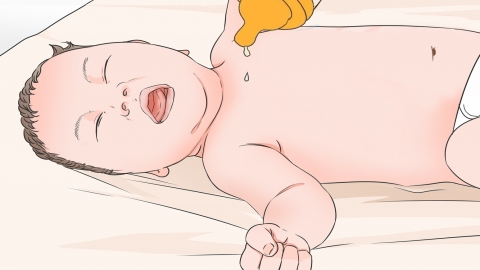What to do when a baby is irritable during teething
Generally, it is common for babies to feel irritable during teething, usually caused by the discomfort in the gums during the teething process. This can be alleviated by using teething tools, appropriate cold compresses, maintaining oral hygiene, distracting the baby's attention, and providing comfort and companionship. A detailed explanation is as follows:

1. Use teething tools
Parents can provide babies with teething sticks or gum rings. These tools can relieve itching and discomfort in the gums. High-quality teething tools should be chosen, ensuring they are clean and hygienic to avoid infections.
2. Apply a cold compress
Use a chilled clean cloth or wet towel to gently press on the baby's gums. Cold compresses can numb the nerves and reduce gum pain and swelling. Be careful not to make the compress too cold or apply it for too long, to avoid frostbite.
3. Maintain oral hygiene
During the teething period, it's important to maintain the baby's oral hygiene. Use moist cotton swabs or finger brushes to gently wipe the baby's gums and emerging teeth. Avoid letting the baby sleep with a bottle or pacifier for prolonged periods, to prevent tooth decay and oral infections.
4. Distract the baby's attention
Play games with the baby, play music, or tell stories to divert their attention, helping them forget the discomfort in their gums.
5. Provide comfort and companionship
When the baby feels irritable due to teething, parents should offer sufficient comfort and companionship, using methods such as hugging, kissing, or gently rocking the baby to provide a sense of security. At the same time, parents should remain patient and gentle, avoiding anger or pressure towards the baby.
Parents should choose appropriate methods based on the baby's specific situation and closely monitor their oral health. If the baby's irritability persists or is accompanied by other symptoms, seek timely medical advice from a professional doctor.







